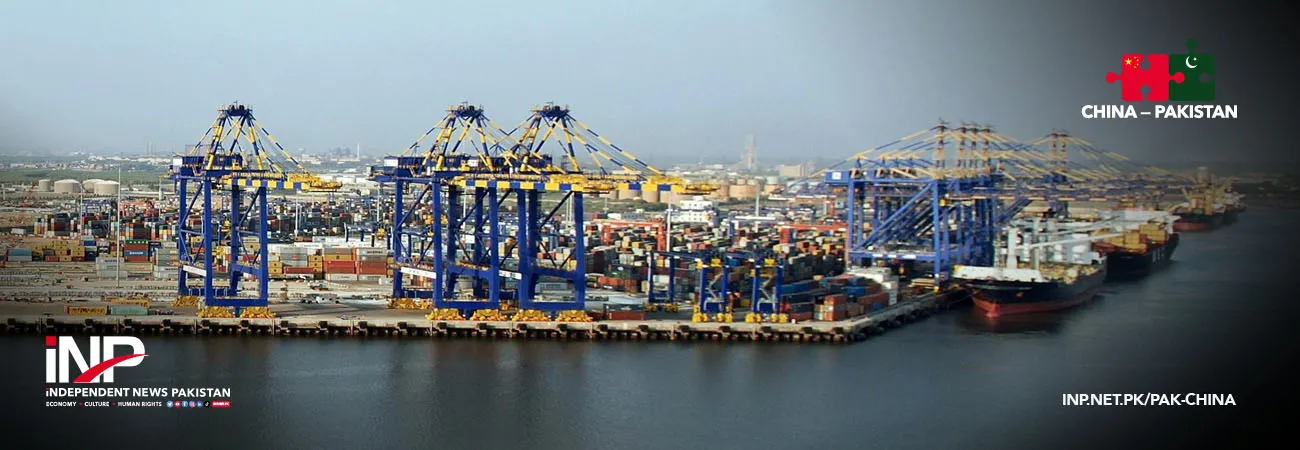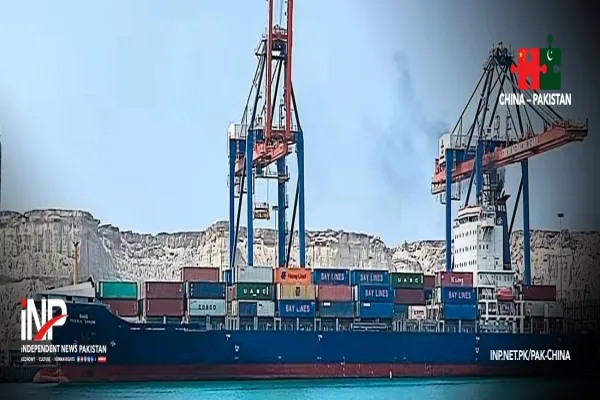i NEWS PAK-CHINA
Pakistan is preparing to establish an integrated maritime industrial complex at Port Qasim with Chinese support, following high-level talks in Islamabad on 20 August 2025. During the meeting, a delegation from Shandong Xinxu Group, led by chairman Hou Jianxin, conveyed its interest in developing the complex alongside a green ship-recycling yard. In a statement, the Prime Minister’s Office said that Shehbaz Sharif had invited Chinese industries to invest in Pakistan, assuring them that the government would “provide all possible facilities for the establishment of Special Economic Zones.”
The PMO confirmed that Shandong Xinxu is “interested in establishing a maritime industrial complex in Pakistan” and that the company “will build a green shipbreaking yard in Pakistan.”
Project Scope and Investment The planned Port Qasim complex would combine port operations with shipbuilding, repair and recycling facilities, alongside industrial clusters for fish and date processing. Shandong Xinxu Group, described as “a high-tech energy enterprise integrating the renewable energy industry chain”, has indicated willingness to bring investment and technical expertise.
The development builds on a Memorandum of Understanding signed in July 2025 between the Pakistan National Shipping Corporation (PNSC) and Shandong Xinxu Group to cooperate on shipping and fleet management. The proposed “green” shipbreaking yard would be designed to meet international environmental and safety standards, in contrast to the troubled Gadani ship-breaking yards, which have faced repeated criticism over labour and pollution concerns.
Strategic and Economic Implications
Port Qasim, situated 50 kilometres east of Karachi is Pakistan’s second busiest port, handling about 35% of the nation’s cargo (17 million tons per annum). Officials believe the new industrial complex would strengthen its role as a logistics and manufacturing hub, complementing Gwadar Port’s development under the China–Pakistan Economic Corridor (CPEC).
The initiative is expected to create thousands of jobs in construction, maritime trades and logistics. It would also expand Pakistan’s capacity in ship-recycling, a sector long dominated by India and Bangladesh, where international buyers increasingly demand environmentally compliant facilities.
Chinese representatives have also highlighted fisheries and food processing as areas with export potential. The PMO said the enterprise aimed “to benefit from Pakistan’s potential in fishing, fish processing and in the processing of date fruits.” Pakistan is already a significant producer of seafood and dates but lacks modern processing capacity, limiting its ability to compete in higher-value markets.
Challenges and Considerations
Despite the promise, hurdles remain. Financing details for the complex have not yet been finalised, and Pakistan’s fiscal stress may constrain incentives for foreign investors. Land availability and infrastructure upgrades around Port Qasim could also prove difficult, given the port’s existing industrial density. Moreover, with Chinese firms driving the project, some analysts caution that Pakistan may find itself increasingly dependent on a single partner for critical maritime infrastructure.
A relationship that brings investment but could also limit Islamabad’s flexibility in negotiating future terms.
Environmental compliance will also be central to the project’s credibility. Ship recycling involves hazardous materials such as asbestos and oil residues, requiring strict monitoring. Analysts caution that Pakistan’s regulatory oversight must be strengthened to ensure the new yard avoids the poor practices long associated with Gadani.
The proposed Port Qasim maritime industrial complex marks an ambitious effort to diversify Pakistan’s coastal economy beyond cargo handling. If implemented effectively, it could modernise ship recycling, create new industrial value chains, and reinforce Pakistan’s role in regional trade networks.
The project also underscores the continued depth of the Pakistan–China partnership, with Beijing investing heavily in energy and transport under CPEC. However, observers note that success will depend on Islamabad’s ability to deliver regulatory reforms, enforce environmental safeguards and ensure supporting infrastructure. If these challenges are met, Port Qasim could emerge as a cornerstone of Pakistan’s maritime future, linking industries to global trade while strengthening economic ties with China, Maham Tahir reported from UK.
Credit: Independent News Pakistan (INP) — Pak-China









